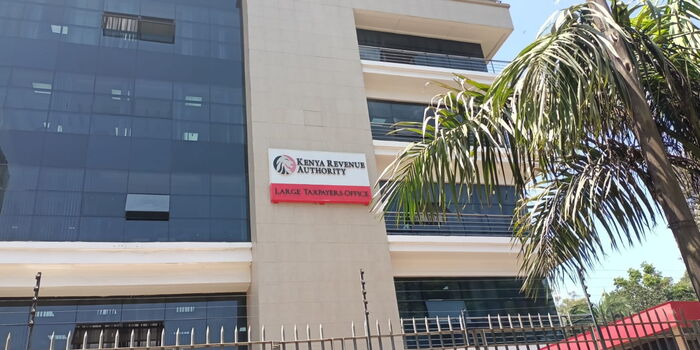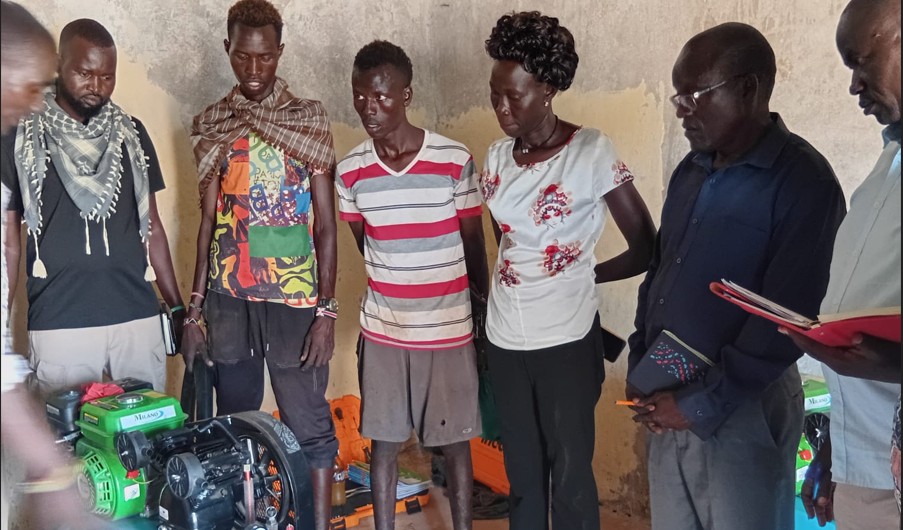KRA’s e-recruitment system under fire for allowing unqualified candidates

The report states that the authority had requested the Treasury and the PSC to give it permission to hire 1,500 revenue service assistants, for which the two bodies approved the hiring of 1,406 of the officials, and KRA proceeded with their recruitment.
Auditor-General Nancy Gathungu has exposed significant issues with the Kenya Revenue Authority's (KRA) recruitment of Revenue Service Assistants (RSAs) for the year 2023.
In her audit report for the Financial Year 2022/2023 which poked holes into KRA's internal controls, especially its e-recruitment system that was used for the exercise, Gathungu revealed that KRA proceeded with the recruitment of individuals who did not meet the minimum educational qualifications.
More To Read
- Auditor General sounds alarm over mounting losses at Kenya Meat Commission
- How civil servants are illegally drawing salaries from both counties, National Government
- Auditor General flags Sh678 million losses at KNH from NHIF, Linda Mama contracts
- Bill proposes 10-year audits to hold governors accountable after leaving office
- Parastatals’ unchecked borrowing fuelliing Sh2.9 billion debt, Auditor General warns
- Audit exposes systemic procurement failures in stadium projects
She noted that while the minimum requirement for the RSAs was a D+ in the Kenya Certificate of Secondary Education (KCSE), KRA still admitted candidates who scored below D+ during at least the first two rounds of interviews.
In her report, Gathungu noted that the National Treasury and the Public Service Commission (PSC), while approving KRA requests to recruit revenue service assistants, set the minimum academic qualification for the position as a D+ in KCSE.
Candidates were also required to be not older than 35.
“Approval by the National Treasury and PSC were granted and the authority proceeded to recruit 1,406 RSAs who were required to have a minimum grade of D+ and aged below 35 years,” Gathungu said.
However, a review of the recruitment process revealed that 69 applicants with grades below D+ participated in aptitude test I while 30 applicants with grades below D+ also participated in aptitude test II.
“This casts doubts on whether submitted applications were screened before inviting the candidates to participate in the aptitude tests,” Gathungu said in her report.
The report states that the authority had requested the Treasury and the PSC to give it permission to hire 1,500 revenue service assistants, for which the two bodies approved the hiring of 1,406 of the officials, and KRA proceeded with their recruitment.
However, the High Court in March nullified the hiring of the 1,406 personnel noting that it was unconstitutional because the recruitment exercise was skewed in favour of candidates from the Kikuyu and Kalenjin communities.
Justice William Musyoka ruled that, while the two communities constitute 32 per cent of Kenya's population, they constituted more than half of the people that KRA had hired.
"Going by those (Kenya's population) statistics, the 56 per cent allotted to the two communities appears to be grotesquely disproportionate to what was the due share to them," Justice Musyoka said.
The matter is still in court.
The audit also revealed that, by the close of the application deadline, 123,525 Kenyans had applied, though thousands were unqualified for the job.
“Analysis of the raw data list comprising 127,117 applicants revealed that there were 3,592 unique records which were duplicated thereby overstating the number of applicants by 3,592. The correct number of applicants was, therefore, 123,525 applicants,” Gathungu said.
It further notes that, while some 5,577 applicants failed to disclose their age despite the requirement being a key criterion in the application and selection process, KRA irregularly allowed them to progress with the application and selection process.
“The system allowed candidates with incomplete input data to successfully submit their applications. Cases were noted where identity numbers keyed in the system contained characters as opposed to numerical numbers, identity numbers were not keyed in during applications, and in some cases, the applicants shared the same identity numbers. The internal employment application forms allowed applicants to submit more than one application” reads the audit.
According to Gathungu, the reliability of data in KRA's current recruitment module may be misleading.
She termed the security controls embedded in KRA's e-recruitment system as "weak" noting that information obtained from it "cannot be fully relied upon in its entirety."
Gathungu however said the management has committed to strengthening the control features in the recruitment module.
Top Stories Today










































